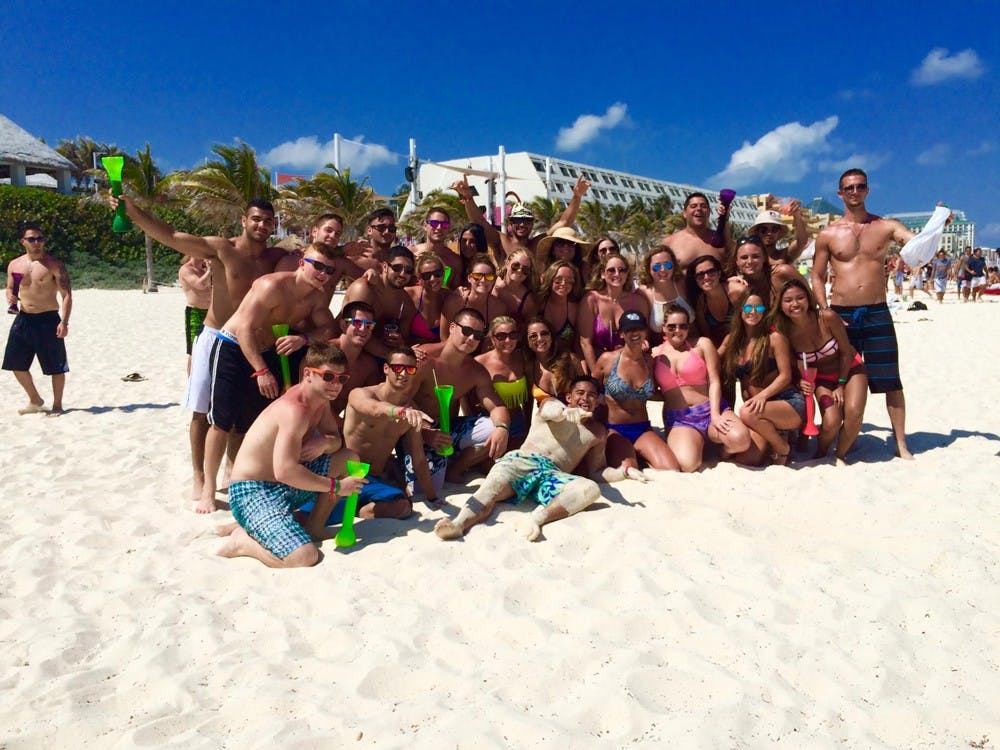After spending 10 days in Europe during the spring break of his junior year, Garrett Rubin said he came back to UB feeling more drained than he had initially going into break.
Rubin, a senior health and human services major, went to visit a friend in Dublin, Ireland before they traveled to Madrid, Spain where the friend was studying abroad. He said upon coming back to campus, “all [he] wanted to do was go home and sleep for another week.”
UB’s spring break runs from March 12-20 this year – giving students about a week away from classrooms and assignments. For some students, this means staying home and catching up on studying. For others, it means going on exotic vacations to party on the beach.
But some students come back from their time away from campus more stressed than they were before their trip. Sharlynn Daun-Barnett, alcohol tobacco and other drug prevention specialist for Wellness Education Services, said that there’s a notion that students work hard during the semester and when a break comes, they should “party hard” too. But Daun-Barnett said every student is affected by spring break in his or her own way.
Harrison Jones, a senior communication major, said he developed depression after returning back from spring break during his junior year. Along with a group of friends, Jones, whose name has been changed because he did not want to speak publicly about his depression, went to Cancun, Mexico and stayed at an all-inclusive resort while he was there. He said he spent his days relaxing and partying on the beach or exploring the downtown area during the afternoon and night.
Jones said he was exhausted and hung over upon returning to Buffalo. He said his depression stemmed from a “combination of drinking every day and having such a great time to then come back to reality.”
“The week you come back there’s a lot of work. After spring break you come back and everything is piled in those two weeks,” Jones said. “If you just go home and relax [during break] it’s beneficial for school but if you go away for spring break you’re more stressed but you can’t beat the experience.”
Some students, like Lucas Schwertfeger, choose to spend their break staying home rather than in tropical vacation spots. He said he likes to use his break to catch up with friends and watch Netflix. Schwertfeger said he’s more of the type to stay in during spring break.
“I’m not one of those people who want to party it up the whole week,” he said.
And according to UB’s Wellness Education Services center, Schwertfeger is not alone in his decision.
Daun-Barnett said less than 14 percent of students country-wide actually go on spring break trips and most students go home to visit friends or family during their week off. A recent survey by CheapTickets.com, however, found that 55 percent of college students are traveling for spring break this year.
“There’s a lot of expectations about what you’re supposed to do on spring break and I think that leads to people thinking that you’re supposed to go on this crazy vacation sometimes or just to an extreme,” Daun-Barnett said.
While some may spend the week partying and come back feeling run-down or stressed, those who slept all week may return to classes feeling that way as well.
Daun-Barnett said just because a student parties every night doesn’t necessarily mean he will return worse-off than one who binge watches television for the entire week.
Like Jones, David Rubino* went to Cancun, Mexico for spring break during his junior year. Rubino, a senior economics major, went along with a group of 40 other students for a seven-day trip at a resort. Rubino said he returned from Cancun refreshed and well-rested.
“It was the best seven days of my life,” Rubino said.
Wellness Education Services is running a campaign called “Lead the Break” which allows students to write on posters how they plan to spend their week off. She said as long as students feel the way they choose to spend break is meaningful to them, that’s all that matters.
“I think the break can be useful, people can come back refreshed, or it can be meaningful to them,” Daun-Barnett said. “So refreshed can mean they had an oasis from their stress or it can also mean they had two days to focus on something that was just making them stressed and they got it done.”
*David Rubino works on The Spectrum's advertising staff.
Marlee Tuskes is the senior news editor and can be reached at marlee.tuskes@ubspectrum.com. Follow her on Twitter at @marleetuskes5.





